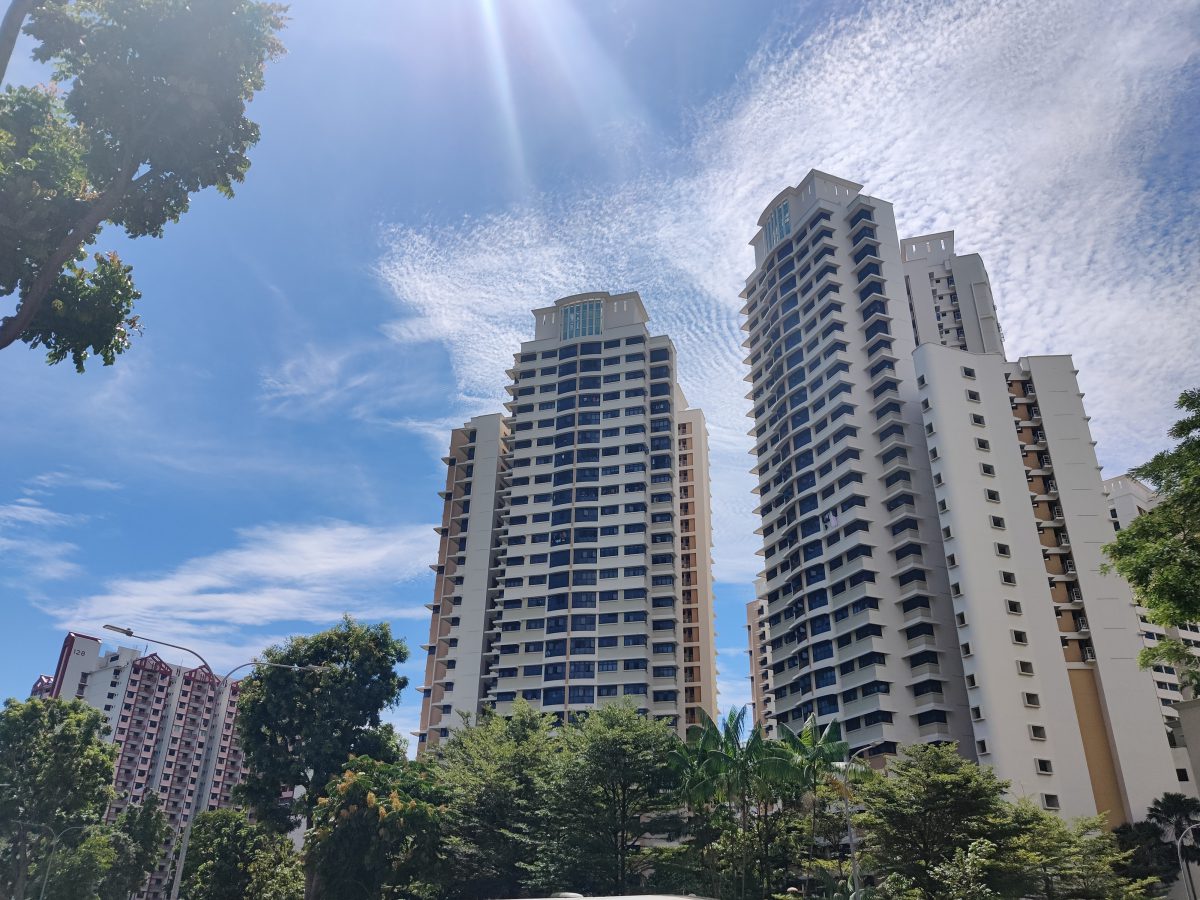With the increase in Additional Buyer’s Stamp Duty (ABSD) taking effect on 27 April 2023, some homebuyers in Singapore will find themselves forking out more in taxes for any residential property purchases after their first.
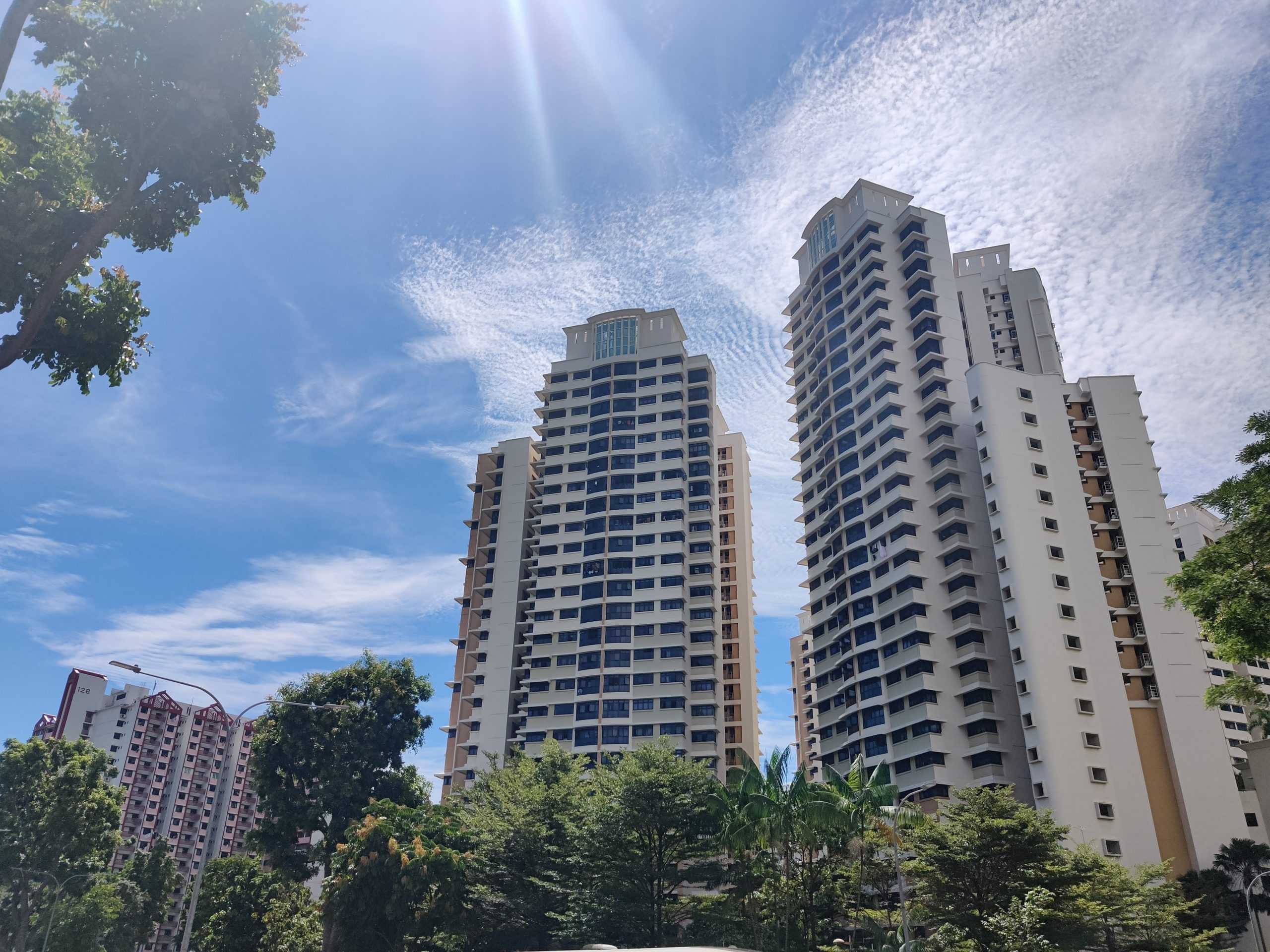
This latest move by the Singapore Government to promote “a sustainable property market” came amidst rising demand as well as climbing home prices, and is preceded by two other recent cooling measures namely:
An adjustment in ABSD rates in 2021 – from 12% to 17% – for Singaporeans purchasing their second residential property, and the subsequent implementation of a 15-month wait-out period for private homeowners downgrading to a resale HDB flat in 2022.
Nonetheless, the matter at hand is the current changes to the ABSD rates. What do they bode for Singaporean and non-Singaporean property buyers? Also, what changes will we see in the local property market? For answers and more, keep scrolling!
What are the new Additional Buyer’s Stamp Duty rates from 27 April 2023 onwards?
Similar to before, the application of ABSD to homebuyers in Singapore hinges mainly on three factors: their citizenship, the type of property that they wish to purchase, and finally, the number of properties they own.
However, what is of note this time round, are the rate changes as summarised in the table below:
| Rates before 27 Apr 2023 | Rates on and after 27 Apr 2023 | ||
| Singapore citizens | 1st residential property | 0% | 0% |
| 2nd residential property | 17% | 20% ↑ | |
| 3rd residential property onwards | 25% | 30% ↑ | |
| Permanent Residents | 1st residential property | 5% | 5% |
| 2nd residential property | 25% | 30% ↑ | |
| 3rd residential property onwards | 30% | 35% ↑ | |
| Foreigners | Any residential property | 30% | 60% ↑ |
| Entities/Trustees | 35% | 65% ↑ | |
| Housing Developers | 35% + 5% | 35% + 5% | |
Most noticeably, the ABSD rate for foreigners was adjusted upwards from 30 percentage points to 60 percentage points.
At the same time, the following buyer segments also saw changes to their respective ABSD rates:
- Singapore citizens will be subject to ABSD of 20% (up from 17%) for their second property purchase and 30% (up from 25%) for their third and subsequent properties.
- Permanent residents will be subject to increased ABSD rates too. 30% (previously 25%) for their second property purchase, and 35% (previously 30%) for their third and onwards properties.
- The ABSD for entities/trustees will rise from 35% to 65%, and like in the case of foreigner buyers, this new rate will apply to all residential property purchases in Singapore.
How much will foreigner homebuyers be paying with the new ABSD rates?
ABSD amounts are calculated using the purchase price stated in a taxable document or the market value of the property, whichever is higher. The same applies for Buyer’s Stamp Duty (BSD) as well.
So, for instance, if a foreigner were to purchase a $1M residential property in Singapore and his purchase is subjected to the new ABSD of 60% and BSD of 6% (1% on the first $180,000, 2% on the next $180,000, and 3% on the remaining $640,000), the total stamp duty amount to be paid would work out to be $624,600
| Taxable value | Stamp duty rate | Stamp duty to be paid |
| First $180,000 | 1% (BSD) | $1,800 |
| Next $180,000 | 2% (BSD) | $3,600 |
| Next $640,000 | 3% (BSD) | $19,200 |
| $1,000,000 | 60% (ABSD) | $600,000 |
| Total payable stamp duty (BSD + ABSD) | $624,600 | |
As an aside, it is worth highlighting that the old ABSD rates may still be applicable for some property purchases, but only if they fulfil all of the following criteria:
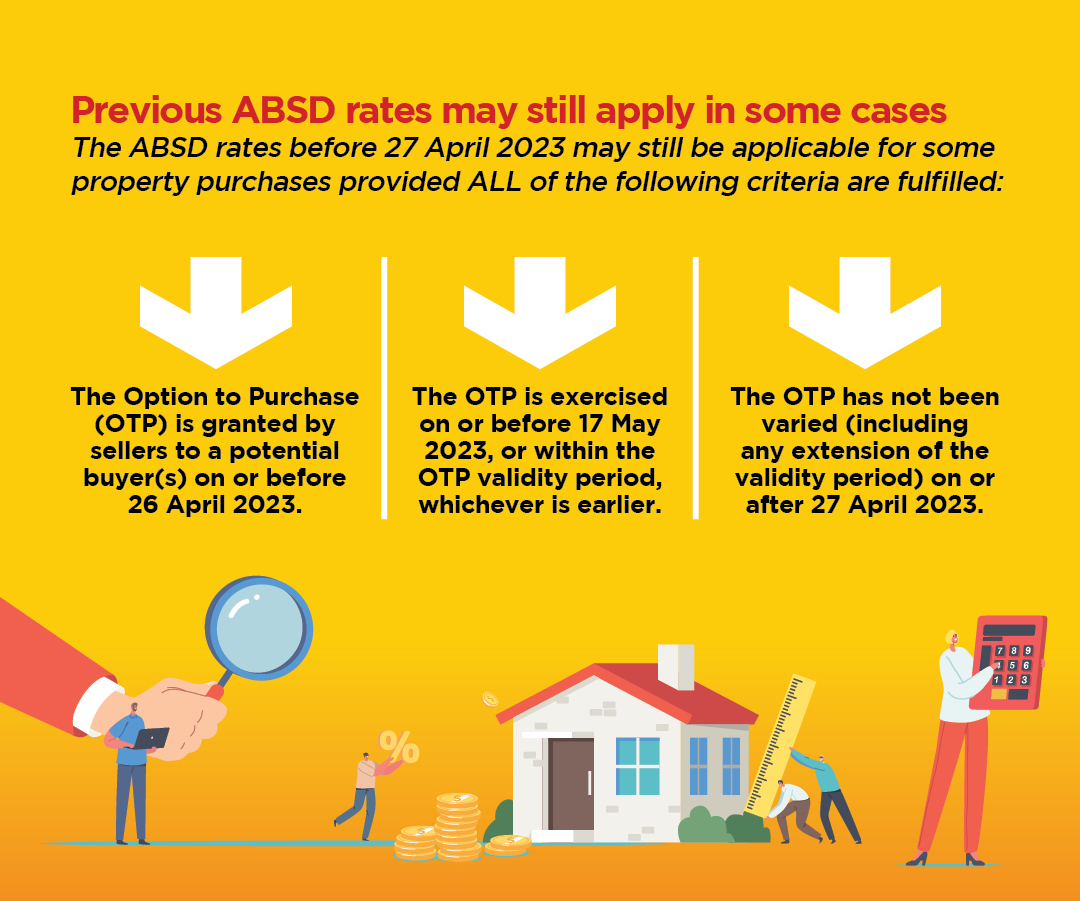
- The Option to Purchase (OTP) is granted by the seller to a potential buyer(s) on or before 26 April 2023.
- The OTP is exercised on or before 17 May 2023, or within the OTP validity period, whichever is earlier.
- The OTP has not been varied (including any extension of the validity period) on or after 27 April 2023.
What’s next for Singapore’s property market after the ABSD rate hike?
Though foreign property buyers are likely to take pause and re-evaluate their purchasing choices following the latest ABSD rate hike, the bedrock qualities that make Singapore an attractive destination for long-term real estate investments still remain.
These fundamentals include long-term political stability, strong economic fundamentals, and a pro-business environment, all of which are desirable qualities for global enterprises and individuals who are keen on pursuing opportunities locally.
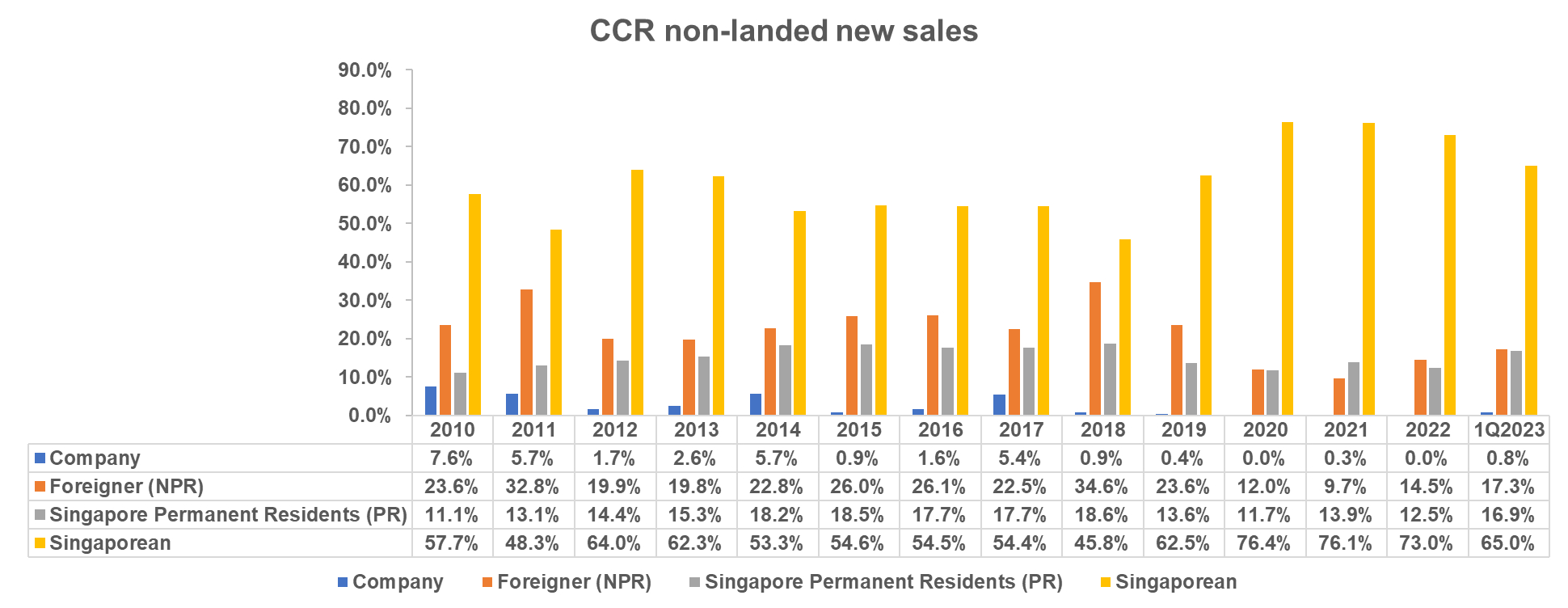
Furthermore, despite the rising number of foreign buyers in recent years, it should be highlighted that local buyers and permanent residents (PRs) are still the primary driving force behind much of the activity taking place in Singapore’s property market.
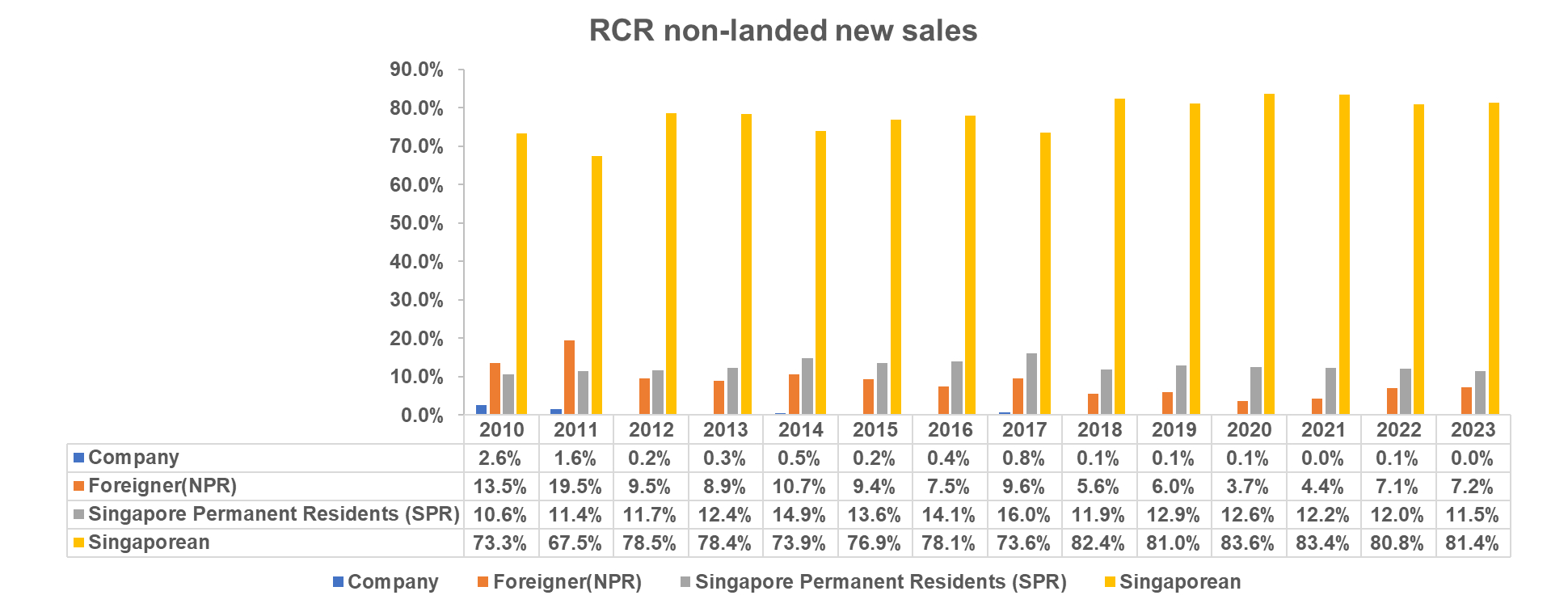
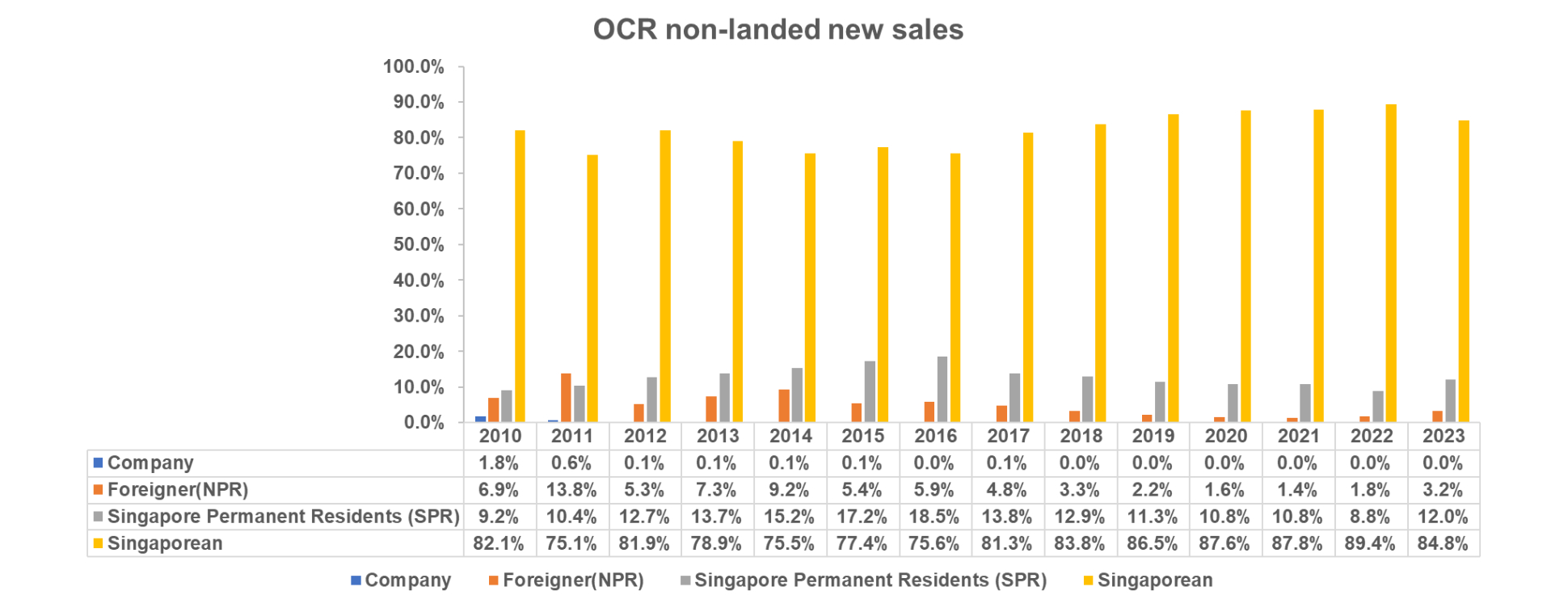
Based on available data, the dominance of local and PR buyers in Singapore’s property market is evident across all regions of the city-state, including the Core Central Region (CCR), Rest of Central Region (RCR), and Outside Central Region (OCR). In fact, Singaporeans and Permanent Residents (PRs) have consistently been the primary buyer groups in these areas year on year, with foreign buyers mostly playing a secondary role.
As such, it is highly plausible that there will be a stabilisation in residential property prices, along with the emergence of a more sustainable real estate market in coming months, where locals and PRs continue to be key demand drivers.
Disclaimer for consumers
This information is provided solely on a goodwill basis and does not relieve parties of their responsibility to verify the information from the relevant sources and/or seek appropriate advice from relevant professionals such as valuers, financial advisers, bankers and lawyers.
For avoidance of doubt, ERA Realty Network and its salespersons accept no responsibility for the accuracy, reliability and/or completeness of the information provided. Copyright in this publication is owned by ERA and this publication may not be reproduced or transmitted in any form or by any means, in whole or in part, without prior written approval.

